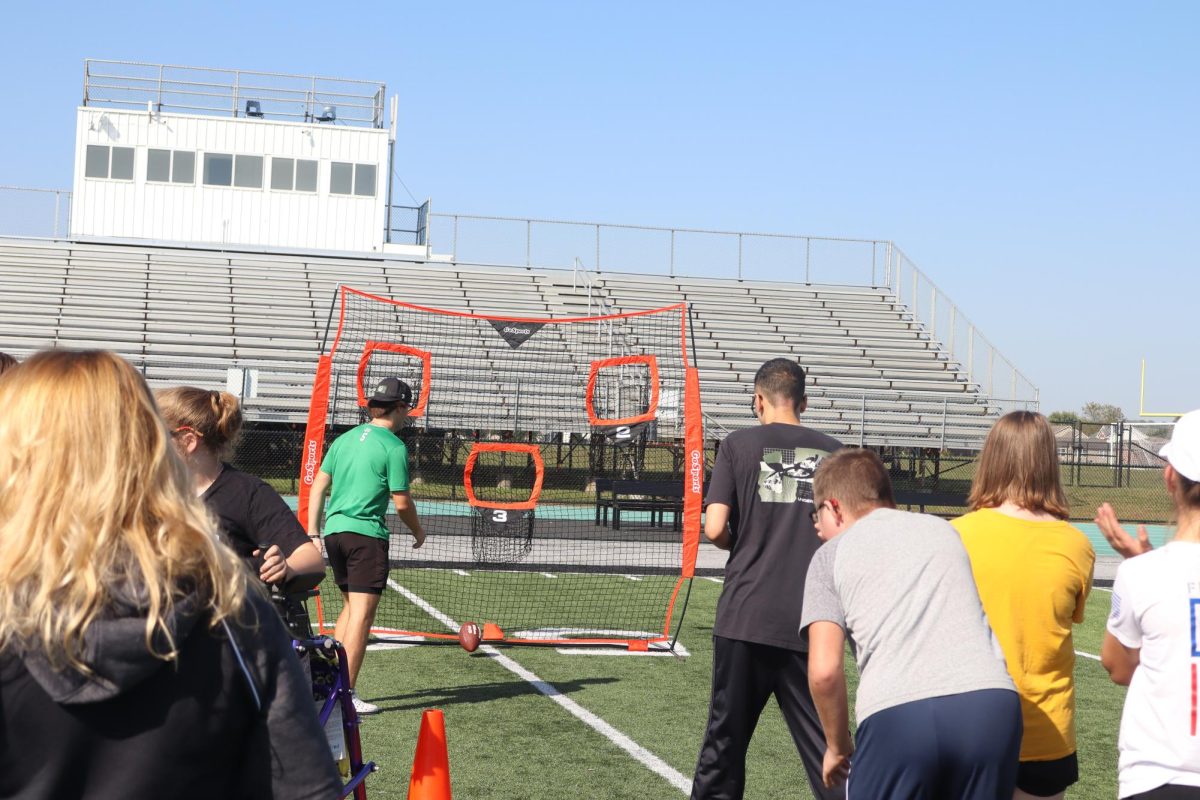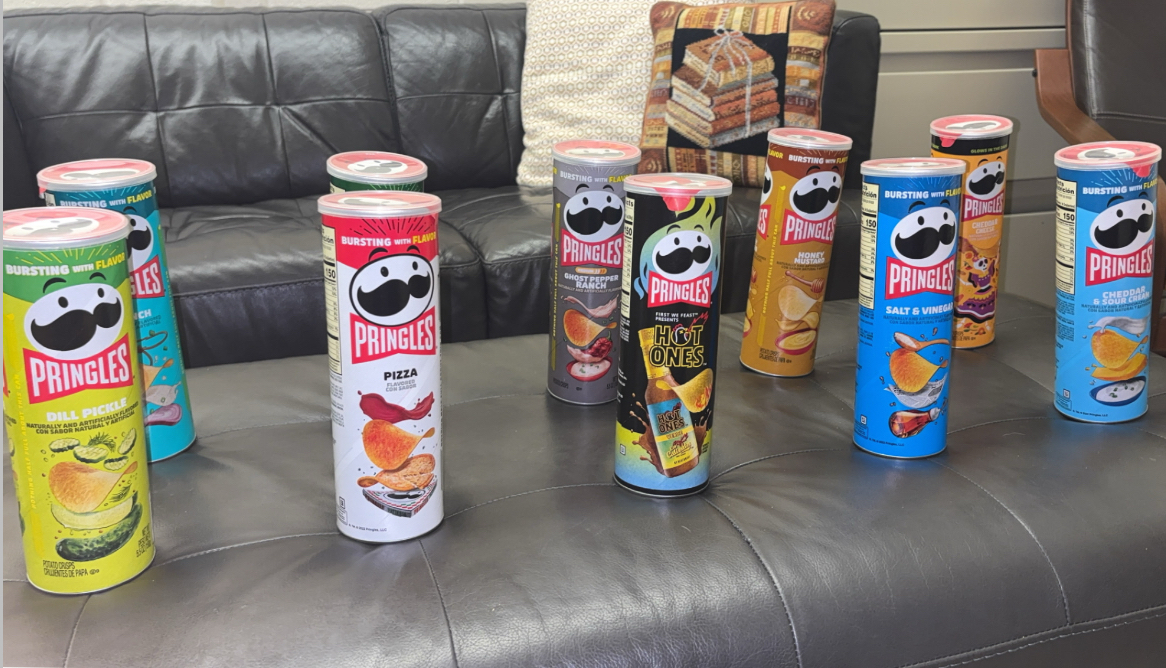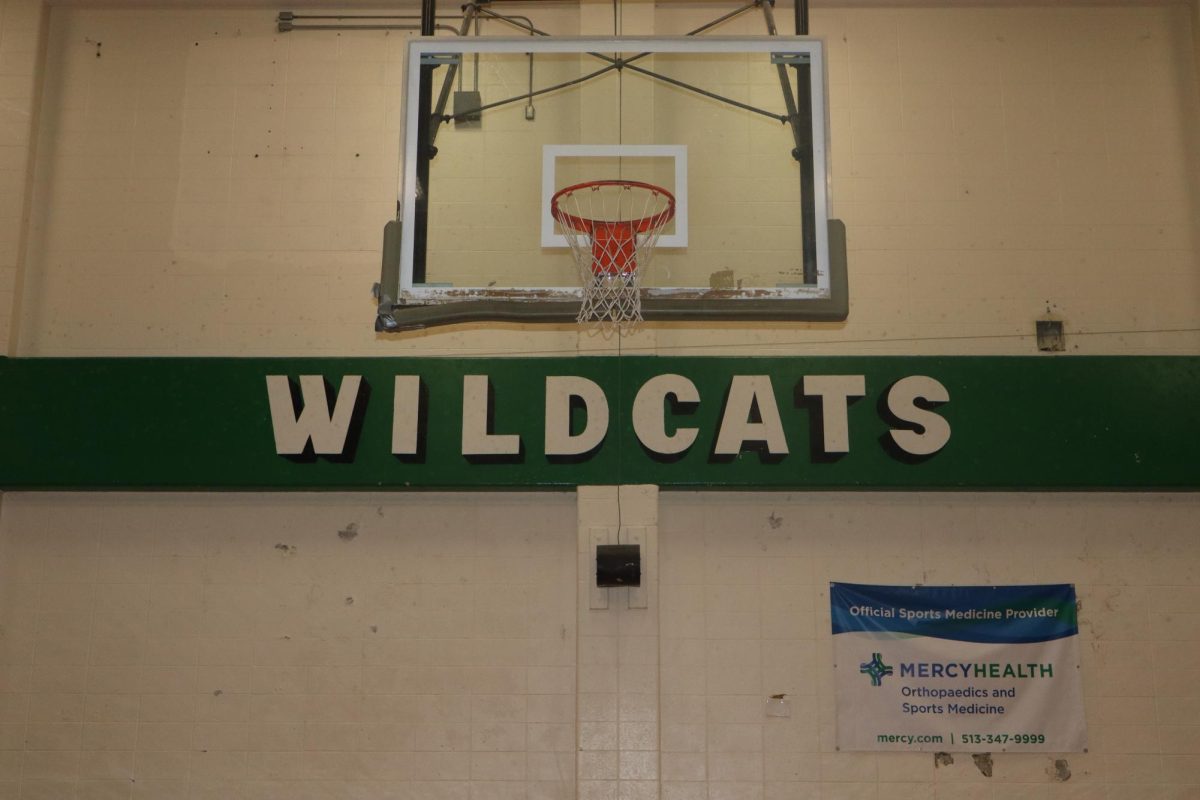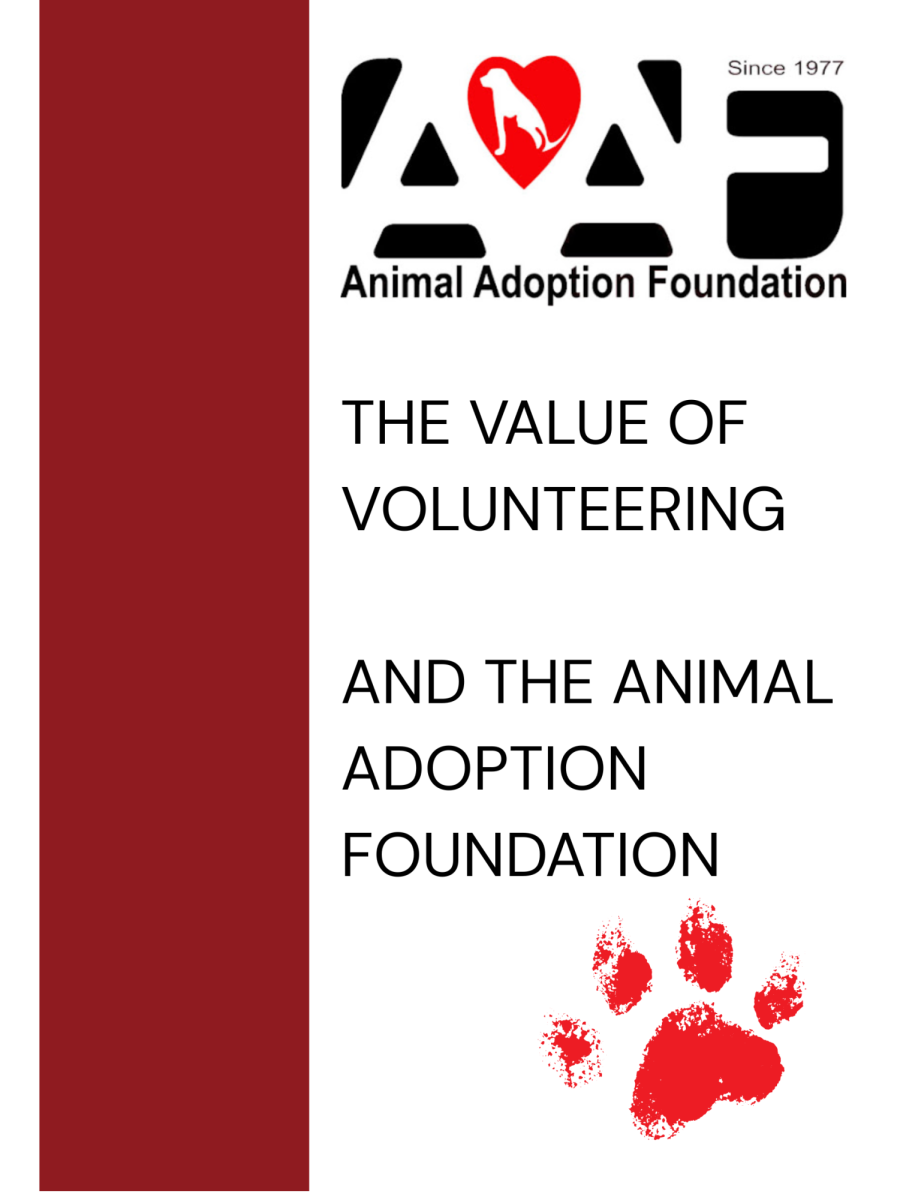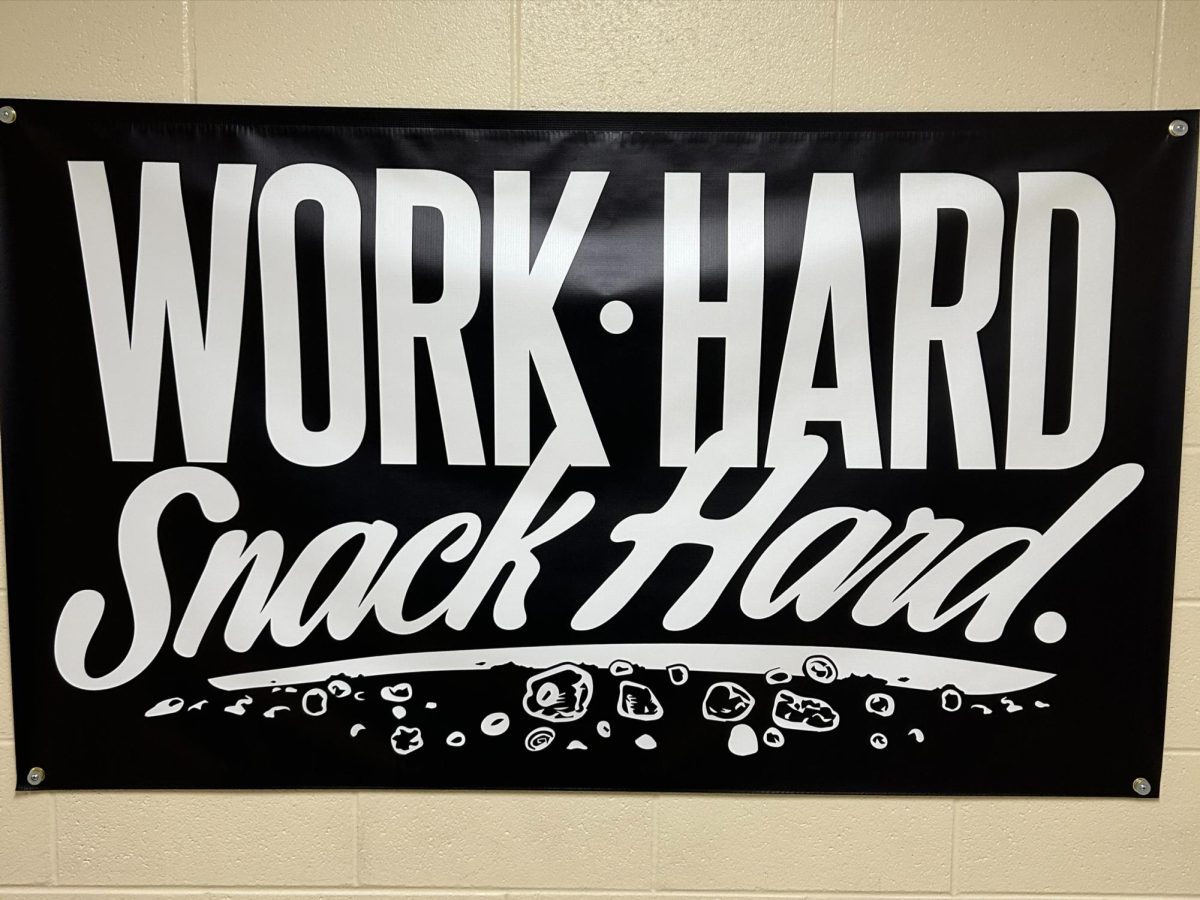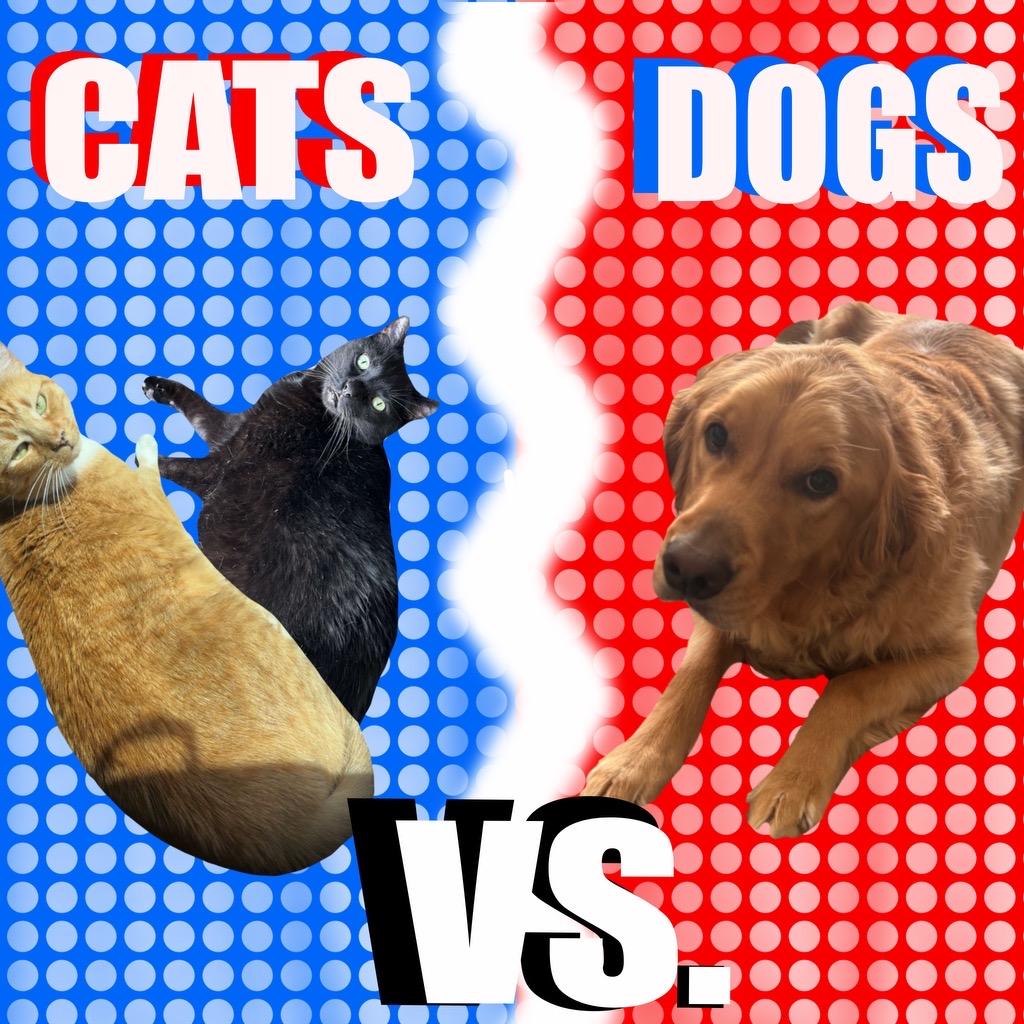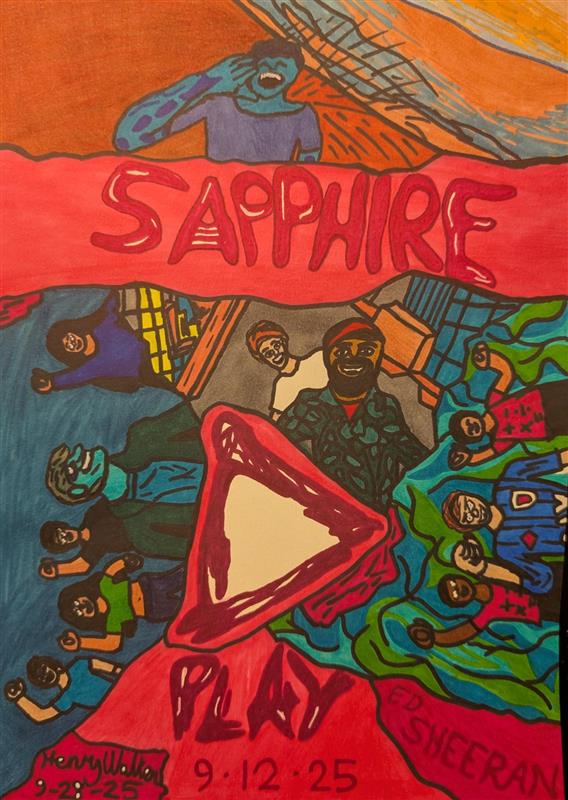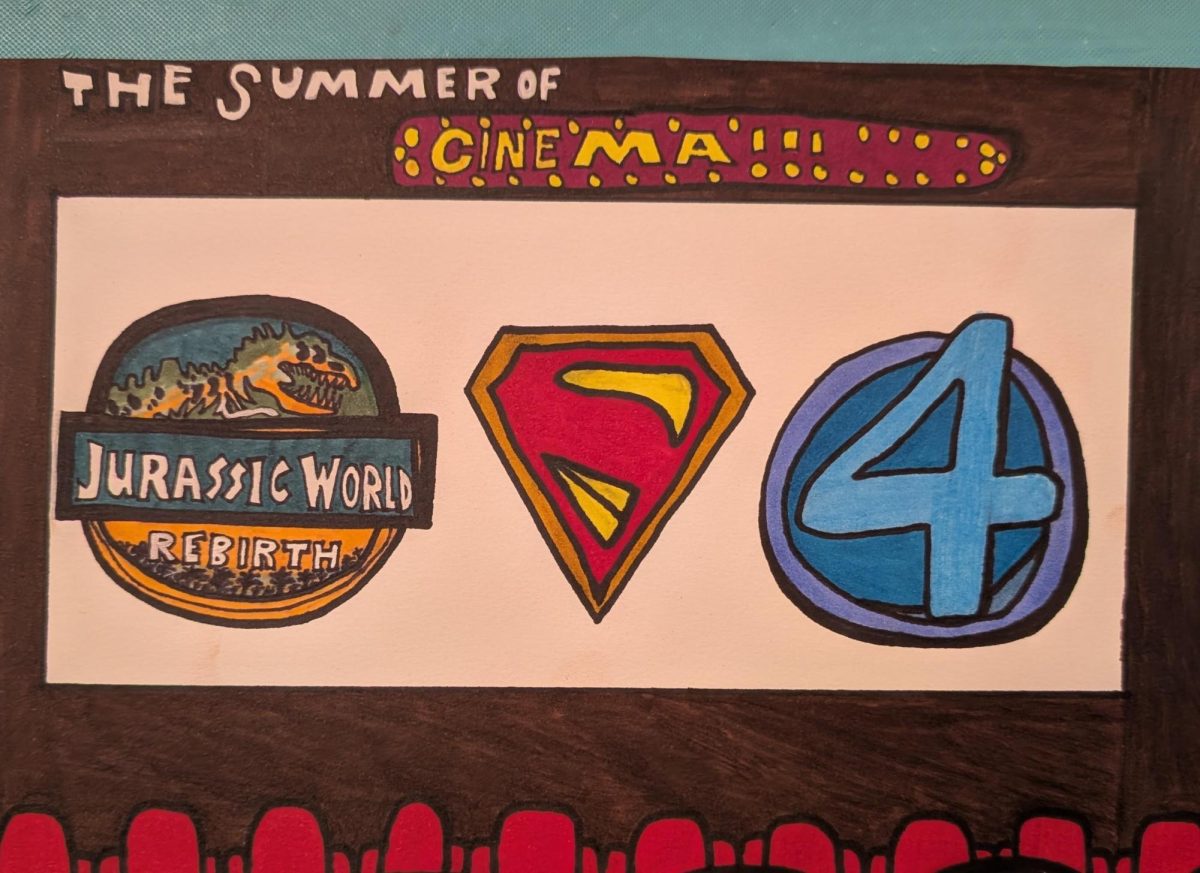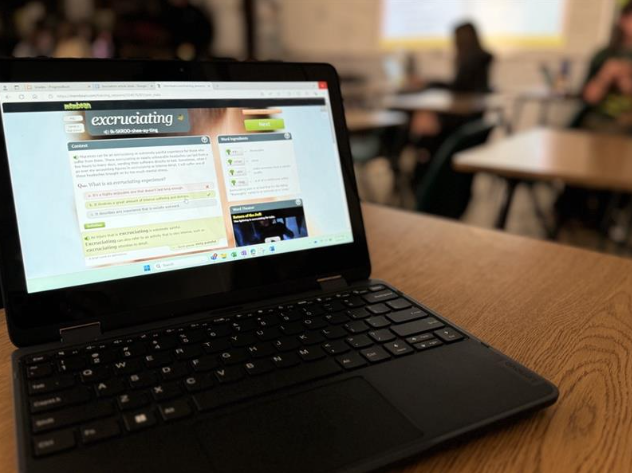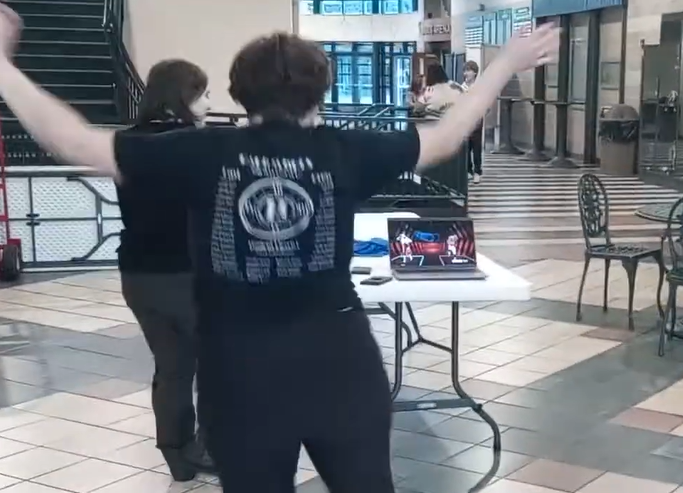Two years ago Harrison started using Membean, a program designed to help kids learn vocab. Since then, students have had to complete three 15 minute ‘training’ sessions every week, much to students’ chagrin and teachers’ delight.
There’s no worse feeling as a student than the Sunday night realization that you forgot to do three Membean sessions that week. The general reaction is not the greatest; One student described the dilemma perfectly: “When I forget about Membean I audibly scream ‘MEMBEAN’ and then cry as I start doing my 45 min session.” At first, the points earned from daily learning sessions may not seem predominant. Over time, it builds and builds until the app gets the power to destroy grades. This is why students at Harrison High School can be found switching tabs to complete their 15 minutes of Membean vocabulary practice in every subject of the day.
So, if everyone already knows about the students’ malice for Membean, what makes this article relevant? Well, we asked ourselves the same question, only to come to the conclusion that we wanted to know more about why people seemed to hate this website so much more than most of the other learning tools used in this school. And to do that, we used an anonymous poll to get the unfiltered opinions of the William Henry Harrison students themselves.
It takes a certain kind of hatred for a student to take time out of their day to say something like “It’s a useless, trivial waste of time that no one gains value or detriment from” on a form. In fact, 94% of students in our test group agreed that they either hate, or are indifferent towards the app, which is representative of the constant complaints that are heard all throughout the school year.
The staff members at this school reinstate Membean year after year for a reason. But why? When asked, Mr. Jeff Nienaber, English teacher and department chair at Harrison high school, tried to explain. “Most of us don’t learn new vocabulary by memorizing definitions…We learn words by using them, and that’s how Membean was designed,” he said. Nienaber explained that Membean utilizes the same learning techniques that we use as toddlers to learn our first words; using and applying these frivolous words to situations. However, all of the teachers that we asked seemed to be aware of the students’ distaste for the app.
Ms. Tricia Evanson, another English teacher at Harrison high school told us, “Membean is like flossing, -not the dance move–the thing you do with your teeth. Nobody likes to floss, but if you don’t do it, eventually you don’t have teeth.” After hearing these remarks, we came to the conclusion that either our teachers want us to suffer, or they have actual proof of Membean working its magic. Assuming our lovely teachers don’t want to see their students fail, we looked into the latter.
There’s clearly some truth to our teachers’ statements, because the company has their own statistics published, which say that between 2018-2019 ninth graders test scores increased by 12.49% and eleventh graders testing scores increased by 7.47%. This applies to our own school too, with 32% of students admitting they’ve expanded their vocabulary with Membean.
Ultimately, we came up with a few main reasons as to why we all dislike Membean:
The first reason is one that I can relate to, which is that there lucidly isn’t a lot of time for us students to get our sessions in. Another student who took the survey told us, “Membean is probably fine for most, but I’m in over 13 extracurriculars and in several AP classes. It’s super hard for me to keep up with.” Even though not every student partakes in 13 extracurriculars, it’s surprising how many kids at Harrison seem to have the same problem as this student, including myself.
Especially as Harrison continues to support the goal of getting to a 100% extracurricular participation rate as well as trying to give students lots of opportunities to take honors and AP level classes, our schedules are continuing to get busy. Which means, of course, less time to spend 45 minutes a week on a website that cannot be paused when needed.
The second most mentioned reason by students was the grading. Many students, myself included, believe that Membean should not be graded based on accuracy. “A 100% on Membean just tells you the students aren’t learning any new words.” Personally, I agree wholeheartedly with Nienaber when he said that learning words on Membean is similar to learning words as a child, which is exactly why Membean should not be taken for a grade! It takes toddlers months and sometimes years to learn new words, alongside a lot of practice. And while Membean does give us that, it shouldn’t be expected for kids to get high accuracy rated on words that they are still learning.
To further buttress this argument, many students have been averaging D’s or F’s on their Membean sessions, some say their love for the subject is disappearing due to the frustration that the app creates. Because students are so worried about getting their sessions graded, they begin to dread their Membean time and use the app halfheartedly or while multitasking to “just get it over with.”
As students, we have a lot of pressure placed on us through homework, sports, extracurriculars, and home life. It’s been seen that Membean can actually help children’s vocabulary, and some kids even say that they like it. Personally, when I have some free time in school and I’m studying words that I’ve already learned with the website, Membean can even be a fun way to pass time. However, our school has gone about utilizing the app in all the wrong ways. Students have no time to get their Membean done, and when they are forced to make time, they find their grades suffering for the student’s inability to give their full time and attention to their sessions.
What can we do to change this? My recommendation is for teachers to practice setting more demarcation with the website by only using Membean in their classes, instead of expecting students to find time throughout their week for their sessions. I also suggest that teachers don’t grade Membean based on students’ performance, and instead grade off of participation. Furthermore, if teachers run into students who use that grading system as an opportunity to not try, I recommend giving extra credit points for improvement or high accuracy. By doing all of these things, we can reach the full acme of our vocabulary. Most importantly, if us students are struggling with our vocabulary sessions, that should be a telltale sign to work on those skills as a class rather than relying on a website.
